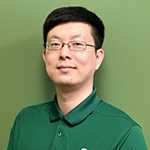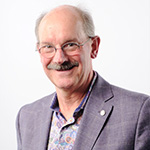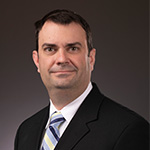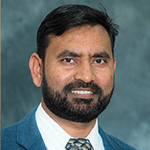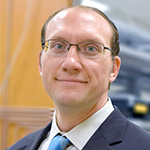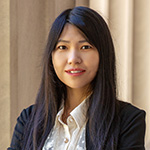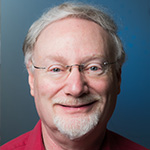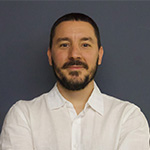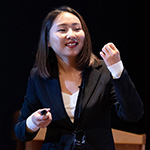Battery Division Postdoctoral Associate Research Award Sponsored by MTI Corporation and the Jiang Family Foundation
Tuesday, 1020h / Salon 5 and 6
Science of Multiphysics Behavior of Si/C Composite Anodes in High-Energy-Density Lithium-Ion Batteries
by Xiang Gao
Xiang Gao is a postdoctoral fellow at the University of North Carolina at Charlotte. His battery research began during his PhD studies and today he is at the forefront of high-energy-density anode and battery safety studies. With 21 published papers in notable journals, including Journal of The Electrochemical Society, Advanced Energy Materials, Nano Materials, and Energy Storage Materials, Dr. Gao’s research has revolutionized our understanding of battery behavior and safety. He has addressed critical challenges, enhanced battery safety, and paved the way for practical application through cutting-edge multiphysics-multiscale modeling techniques.
Dielectric Science & Technology Thomas D. Callinan Award
Tuesday, 1020h / Sierra I
Rare-Earth Luminescence in Silicon-Based Thin Film Structures
by Peter Mascher
Peter Mascher holds the William Sinclair Chair in Optoelectronics at McMaster University. He leads research groups active in the fabrication and characterization of thin films for optoelectronic applications, development and application of silicon-based nanostructures, and characterization of defects in solids by positron annihilation spectroscopy. His research work has been continuously funded for more than 34 years, for a lifetime total surpassing $25M. He is a professional engineer and Fellow of The Electrochemical Society and the Canadian Academy of Engineering.
Prof. Mascher earned a PhD in Engineering Physics from the Technische Universität Graz (TUG) in 1984. Since joining McMaster in 1989 as a professor in the Department of Engineering Physics, he has supervised more than 85 graduate students and postdoctoral fellows and about 70 undergraduate research students. His many international collaborations create a vibrant and stimulating research environment and foster greater global awareness. Mascher has authored or coauthored close to 250 publications in refereed journals and conference proceedings and has presented many invited lectures at international conferences and workshops. His publications have been cited close to 5,000 times. He is Past Chair of the ECS Dielectric Science and Technology Division, and since 2017, a Technical Editor for the ECS Journal of Solid State Science and Technology. He has co-organized many ECS symposia and is the lead organizer of a series of symposia on Nanoscale Luminescent Materials, the eighth edition of which is scheduled for the 245th ECS Meeting.
Electronics and Photonics Division Award
Monday, 1000h / Sierra A
Research Advances Wide- and Ultrawide-Bandgap Power Switching Devices
by Travis J. Anderson
Travis J. Anderson is Head of the Power Electronics and Advanced Materials Branch at the U.S. Naval Research Laboratory (NRL), where he leads a group of scientists studying fundamental material growth, device processing, and performance evaluation of all relevant power electronic materials from Si to diamond. In addition to management duties, his research work focuses on wide bandgap III-N power switches. His expertise is in processing, reliability, failure mechanisms, and radiation effects in Si, GaN, SiC, Ga2O3, diamond, and graphene-based devices. Dr. Anderson received a PhD in Chemical Engineering from the University of Florida in 2008, and a BS in Chemical Engineering from the Georgia Institute of Technology in 2004. The author of over 250 publications and more than 370 presentations (over 100 invited), he has been awarded 41 patents. Dr. Anderson received the 2014 and 2022 Edison Awards for best NRL Patent, 2022 NRL Technology Transition Award, and 2016 Dolores M. Etter Top Navy Scientist Award.
Energy Technology Division Graduate Student Award Sponsored by BioLogic
Tuesday, 1130h / Golden Gate C2
In-Situ Diagnostic Tools and Analysis to Identify Root Causes for Voltage Losses in Anion Exchange Membrane Water Electrolyzers
by Noor Ul Hassan
Noor Ul Hassan recently joined the National Renewable Energy Laboratory (NREL), Chemistry and Nanoscience Center as a postdoctoral researcher with Dr. Bryan Pivovar. His research in the Hydrogen and Fuel Cells group at NREL explores the science behind polymer electrolyte fuel cells and water electrolyzer systems specifically focusing on improving performance and durability. He received his PhD in Chemical Engineering from the University of South Carolina with Professor William Mustain, investigating various component level aspects of fuel cell and water electrolyzer systems such as electrode engineering and optimization, ionomeric binders, catalyst ink rheology, and porous transport layers. While working on his PhD thesis, he collaborated with various U.S. universities and national labs as well as foreign institutions in developing fuel cells and water electrolyzers. For his MSc at İstanbul Şehir Üniversitesi under the supervision of Prof. Bahadir Tunaboylu and in collaboration with TÜBİTAK Marmara Araştırma Merkezi and Gebze Teknik Üniversitesi, he developed proton exchange membrane fuel cell stacks for small air-breathing unmanned aerial vehicles.
Energy Technology Division Graduate Student Award Sponsored by BioLogic
Tuesday, 1400h / Salon 3 & 4
Maha Yusuf is a Presidential Postdoctoral Research Fellow in the Department of Mechanical and Aerospace Engineering and Andlinger Center for Energy and Environment at Princeton University. During her postdoc research, she is combining her expertise in advanced neutron and x-ray-based characterization with physics-based modeling and 3D manufacturing to engineer anodes for long-life lithium-metal-free solid state batteries. She is co-advised by Prof. Kelsey Hatzell (Assistant Professor of Mechanical and Aerospace Engineering and Andlinger Center for Energy and the Environment, Princeton University) and Prof. Craig Arnold (Susan Dod Brown Professor of Mechanical and Aerospace Engineering, and Vice Dean for Innovation, Princeton University). Dr. Yusuf completed an MSc and PhD degrees in Chemical Engineering at Stanford University with support from the Schlumberger Faculty for the Future Fellowship and Diversifying Academia, Recruiting Excellence Fellowship. Advised by Prof. Michael F. Toney and Dr. Johanna Nelson Weker, her PhD research used advanced imaging diagnostic tools, particularly neutrons and x-rays, to understand the failure mechanisms of lithium ion batteries during extreme fast charging (XFC). Dr. Yusuf received awards including the 2022 ECS Edward G. Weston Fellowship, 2022 American Chemical Society Chemical Abstracts Service Future Leader Award, and 2020 Stanford Distinguished Student Energy Lecturer Award. Dr. Yusuf holds a BE in Chemical Engineering from National University of Sciences & Technology, Pakistan, following which she worked as a drilling engineer on oil and gas rigs in Colombia.
Energy Technology Division Research Award
Monday, 1400h / Salon 12 & 13
New Materials vs. Reaction Engineering in Anion Exchange Membrane Fuel Cells
by William Mustain
William Mustain is Professor in the Department of Chemical Engineering and Associate Dean for Research in the College of Engineering and Computing at the University of South Carolina (USC). He works in areas related to electrochemical energy generation and storage, including high capacity materials for Li-ion batteries, novel electrode structures for Li-S batteries, corrosion and passivation of materials, catalysts and supports for proton exchange membrane and anion exchange membrane fuel cells and electrolyzers, electrochemical reactor design and electrochemical synthesis of fuels. He has published over 140 peer-reviewed articles (h-index 50) and delivered over 100 invited lectures. Throughout his career, Prof. Mustain has been highly active in the Society, serving in many roles including as Chair of the ECS Energy Technology Division and Chair of the Individual Membership Committee. He has received awards including the U.S. Department of Energy Early Career Research Program Award, Connecticut Quality Improvement Platinum Award, ECS Energy Technology Division Supramaniam Srinivasan Young Investigator Award, UConn Chemical Engineering Faculty of the Year Award, USC Chemical Engineering Publication Award, USC College of Engineering and Computing Research Achievement Award, Illinois Institute of Technology Outstanding Young Alumnus Award, and Fulbright Scholar Fellowship.
Energy Technology Division Supramaniam Srinivasan Young Investigator Award
Tuesday, 1100h / Sierra D
CO2 as a Building Block for Electrosynthetic Coupling to N- and S- Based Reactants
by Nikolay Kornienko
Nikolay Kornienko is a Full (W3) Professor in the Institut für Anorganische Chemie, Universität Bonn. His team’s overarching goal is to discover and implement the chemistry necessary to transition to a sustainable energy-based society. Specifically, the lab develops materials geared to convert renewable electricity to chemical fuels as an energy storage media, and innovates operando methods to probe them in their course of action. Prof. Kornienko completed his BSc studies at the University of Pittsburgh where he conducted research in the lab of Prof. Sanford Asher, graduating in 2011. He completed his PhD in 2016 in the lab of Prof. Peidong Yang, focusing on materials and energy research. Prof. Kornienko received a Royal Society Newton Fellowship and investigated bio-based energy conversion in the lab of Prof. Erwin Reisner at the University of Cambridge from 2016 to 2018. In 2019, Prof. Kornienko was appointed Assistant Professor at the Université de Montréal and promoted to Associate Professor with tenure in 2022. He moved to the Universität Bonn in 2023.
Industrial Electrochemistry and Electrochemical Engineering Division H. H. Dow Memorial Student Achievement Award
Monday, 1400h / Salon 10 and 11
Tailoring Electrode-Electrolyte Interfaces through Non-Covalent Interactions for Electrochemical Energy Storage and Conversion
by Yirui Zhang
Yirui Zhang is a Schmidt Science Fellow in the Dionne Lab at Stanford University, leveraging electrokinetics and plasmonics for biophotonics and catalysis. Her research focused on electrode-electrolyte interfaces in Li-ion batteries and fuel cell reactions, where she developed in situ characterizations and electrochemical methods to understand interfacial reaction pathways and charge transfer kinetics during electrochemical reactions. Her contributions include uncovering electrolyte oxidation pathways in Li-ion batteries using in situ Fourier transform infrared spectroscopy, demonstrating a coupled-ion electron transfer mechanism for Li-ion intercalation, and elucidating the mechanistic role of water structures and hydrogen bonding in shifting the proton-coupled electron transfer reaction kinetics. Her research goal is to establish design principles for electrolytes, offering insights beyond solid electronic structures to tailor electrochemical reaction activity and kinetics. Dr. Zhang obtained a BS in Mechanical Engineering from Tsinghua University in 2017 and completed a PhD in Mechanical Engineering in 2022 at the Massachusetts Institute of Technology under the guidance of Prof. Yang Shao-Horn. Her research accomplishments have been recognized by the ECS Energy Technology Division Graduate Student Award, MRS Graduate Student Award, the Schmidt Science Fellowship, among other honors.
Nanocarbons Division Richard E. Smalley Research Award
Monday, 1000h / Foothill F
Fluorescence of Single-Walled Carbon Nanotubes: From Discovery to Real-World Applications
by R. Bruce Weisman
R. Bruce Weisman is Professor of Chemistry and of Materials Science and NanoEngineering at Rice University. His research focuses on basic and applied studies of single-wall carbon nanotubes using the methods of experimental spectroscopy and photophysics. Prof. Weisman is best known for leading the discovery and spectral interpretation of near-infrared fluorescence from carbon nanotubes.
Prof. Weisman earned his BSc in Chemistry from Johns Hopkins University and his PhD in Chemistry from the University of Chicago before postdoctoral studies at the University of Pennsylvania. He then joined the faculty of Rice University. Prof. Weisman has been a National Science Foundation Graduate Fellow, Hertz Foundation Graduate Fellow, National Science Postdoctoral Fellow, and Arthur P. Sloan Research Fellow. He has held the Green Lectureship at Texas Christian University and the Xingda Lectureship at Peking University. Prof. Weisman is a Fellow of The Electrochemical Society, American Physical Society, and American Association for the Advancement of Science. He co-edited the journal Applied Physics A and is currently on the editorial board of Scientific Reports and a Series Editor of the Handbook of Carbon Nanomaterials. In addition to his academic activities, Prof. Weisman has since 2004 been the founder and president of Applied NanoFluorescence, LLC, a company that designs, constructs, and sells specialized spectroscopic instruments. These systems enable advanced characterization of nanomaterials in academic, industrial, and government laboratories around the world. As a member of ECS for 30 years, Prof. Weisman has been a frequent symposium organizer and served in all elected positions in the ECS Nanocarbons Division and on several Society standing committees.
Nanocarbons Division SES Young Investigator Award
Wednesday, 1000h / Foothill G1
Surface Chemistry of Nanocarbon Field-Effect Transistors: From Fundamental Physics to Biosensing
by Delphine Bouilly
Delphine Bouilly is Associate Professor in Physics and Principal Investigator at the Institut de recherche en immunologie et en cancérologie (IRIC) at the Université de Montréal. She currently holds the Canada Research Chair in Bionanoelectronics and leads a multidisciplinary research group focusing on nanoelectronic sensors based on carbon nanotubes and graphene, as well as their application in fundamental biophysics and biomedical technology. Her interdisciplinary approach draws from materials physics, surface chemistry, device engineering, and molecular biology. Prof. Bouilly has made noteworthy contributions to the field of nanocarbon materials, particularly in understanding the effect of covalent surface chemistry on the electronic properties of these materials, and in applying nanocarbon devices for single-molecule measurements and biosensing.
Prof. Bouilly earned a BSc (2007) and PhD (2013) in Physics from the Université de Montréal, under the guidance of Prof. Richard Martel. Her graduate work investigated the interplay between surface chemistry and electrical properties in functionalized carbon nanotubes. She then joined Prof. Colin Nuckolls’ research group at Columbia University as a Postdoctoral Fellow (2013–2016) developing ultraminiaturized device architectures based on carbon nanotubes and graphene for single-molecule experiments. Prof. Bouilly has received notable awards including Canada’s National Sciences and Engineering Research Council (NSERC) Vanier, Banting, and André Hamer Awards.
Sensor Division Early Career Award
Tuesday, 1140h / Pacific E
Portable Diagnostics for Cancer Management at Printed Strips
by Stefano Cinti
Stefano Cinti is Associate Professor in the Department of Pharmacy at the Università degli Studi di Napoli Federico II where he leads the uniNanobiosensors Lab. His research interests include the development of electrochemical sensors, portable diagnostics, paper-based devices, and nanomaterials.
Prof. Cinti completed a PhD in Chemical Sciences at the Università di Roma Tor Vergata in 2016 in the group headed by Prof. Giuseppe Palleschi. His research activity has brought him to Finland, UK, US, Germany, and Spain. He has published more than 80 papers in peer-reviewed journals, with an h-index of 33 and >4000 citations. His research has been recognized by many awards, including the Biosensors 2022 Young Investigator Award and 2022 Early Career Analytical Electrochemistry Prize of ISE Division 1. The Italian Chemical Society named him 2019 Best Young Researcher in Analytical Chemistry and 2018 Best Young Researcher in Bio-Analytical Chemistry. He was included in Stanford University’s 2021 and 2022 World’s Top 2% Scientists. Prof. Cinti is the coordinator of the Chemical Cultural Diffusion group of the Italian Chemical Society and Chair of AMYC-BIOMED, a multidisciplinary conference for young chemists in the biomedical sciences. He is very active in communicating science to nonspecialized audiences through TV shows, radio, and magazines.
Sensor Division Student Research Award
Monday, 1140h / Pacific E
Ultra-Sensitive Photothermal Spectroscopy for Attogram-Level Detection
by Yaoli Zhao
Yaoli Zhao is a PhD student working in Thomas Thundat’s lab at University at Buffalo, specializing in the field of chemical detection. Her current research focuses on developing innovative standoff detection sensors, specifically for plastic classification. Zhao has successfully developed techniques and demonstrated methods for molecular identification of plastics, resulting in the publication of multiple research papers in refereed journals, including one as a corresponding author in the Journal of The Electrochemical Society.
Zhao serves as President of the ECS Student Chapter at the University at Buffalo. She has received notable awards, including travel grants for the 243rd ECS Meeting and 2023 GSA. She won 2nd Prize in the Keysight Innovation Challenge and was chosen to be a graduate student speaker at the University at Buffalo’s Graduate Research Symposium. She enjoys recreational activities such as skiing, snowboarding, roller skating, climbing, swimming, badminton, and volleyball. Zhao has maintained a consistent workout routine for over three years and is a license-holding motorcycle enthusiast.






